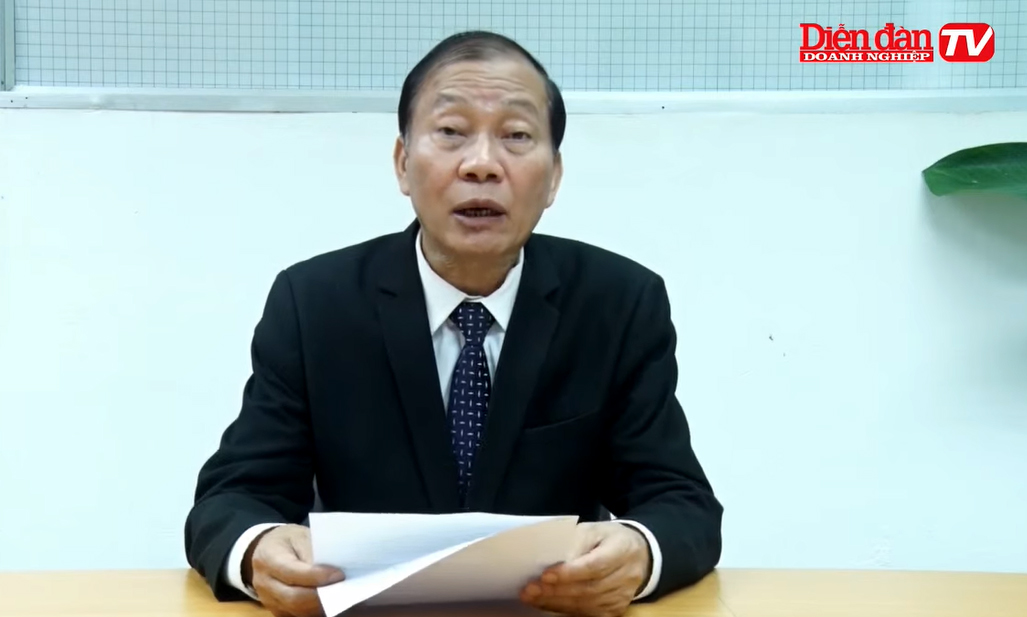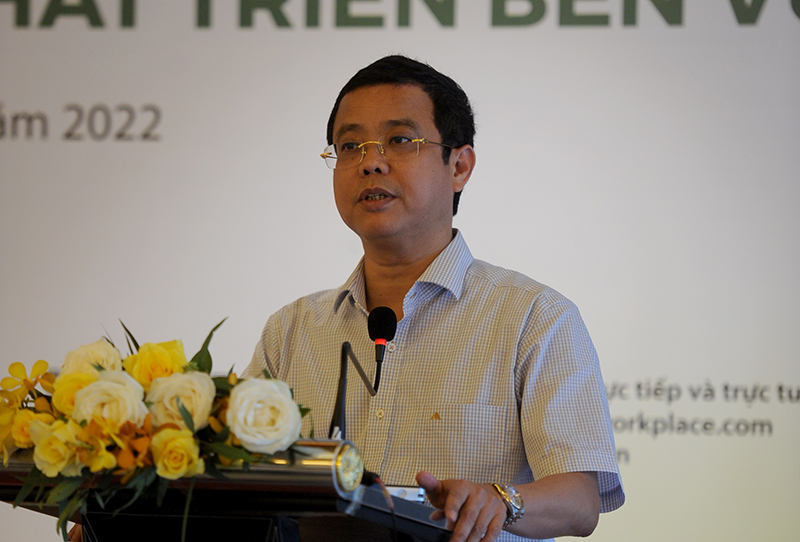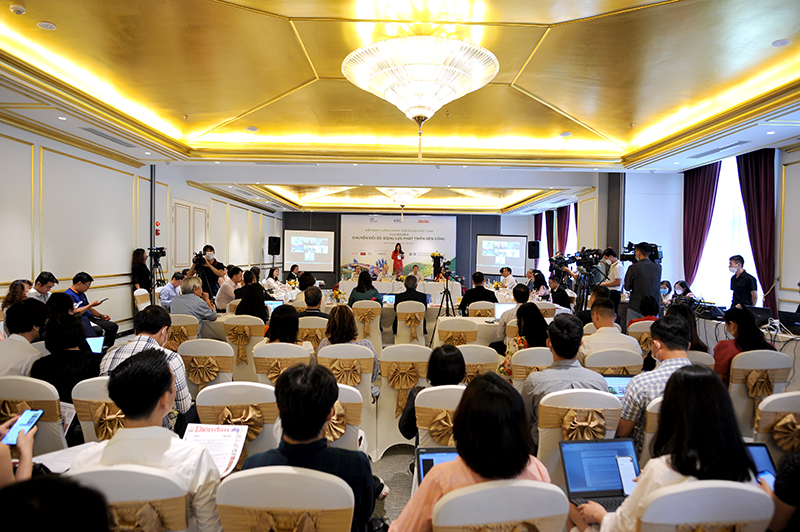Digital transformation as a fuel for long-term tourism growth
This topic was discussed by professionals and tourism businesses at the Forum "Green Stream" for Tourism to Take Off (Theme II): Digital Transformation as a Driver for Sustainable Development, held by the Business Forum Managizine in Hanoi.

Mr. Hoang Quang Phong, Vice President of the Vietnam Chamber of Commerce and Industry (VCCI)
Mr. Hoang Quang Phong, Vice President of the Vietnam Chamber of Commerce and Industry (VCCI), said that at the end of 2018, the Prime Minister issued Decision No. 1671/QD-TTg approving the "Master plan on application of information technology in the tourism industry for the period 2018-2020, with a focus on 2025."
"In Vietnam's tourism industry, a number of tourism businesses have implemented the IT application. In particular, high-end hotels, resorts, and huge travel agencies have accelerated digital transformation to benefit their own management. However, the digital revolution in the tourism businesses in Vietnam is still isolated in a strong way that each business does and there is no consensus", Mr. Phong stated.
Although the COVID-19 pandemic has caused many challenges for the tourism industry, it is a test as well as a lever for it to fully transform, according to VCCI Vice President.
"Digital transformation also enables tourism businesses to respond quickly to market shifts. Guests were unable to travel due to the COVID-19 outbreak in 2020. Based on available data, tourism sector workers continue to connect with customers to understand their psychology, behavior, and wants in order to offer appropriate items", Mr. Hoang Quang Phong said.
Mr. Phong stressed that while successful digital transformation may take several years, it can not be done at a slower pace. Although the COVID-19 outbreak has caused harm, it has also provided an opportunity for tourism organizations to catch up with the world's unstoppable digital transformation trend.
Digital transformation, according to Mr. Nguyen Le Phuc, Deputy General Director of the Vietnam National Administration of Tourism, is a complex process that demands cognitive innovation, close cooperation to act, as well as capacity and resources for implementation. To foster digital transformation in the tourism industry in the future, it will be required to concentrate on key groupings of tasks and solutions.

Mr. Nguyen Le Phuc, Deputy General Director of the Vietnam National Administration of Tourism
First, continuing to complete digital transformation projects and initiatives in the tourism business and submitting them for approval to the government and Prime Minister.
Second, revising, and supplementing the Tourist Law, as well as tourism development plans and strategies, to meet the demands of digital transformation tasks; Proposing suitable changes to legal rules in the sphere of tourism connected to e-commerce, online business models, and transaction activities in the digital environment.
Third, focusing on the development of a number of basic digital platforms for the tourism industry, including: the axis connecting the information systems from the central to the grassroots in service of state management; a national database system on tourism; and an e-commerce floor connecting service providers and tourists.
Fourth, improving strong collaboration between tourism and information technology units to develop solutions and technology models that match the needs of tourism business and management.

Forum "Green Stream" for Tourism to Take Off (Theme II): Digital Transformation as a Driver for Sustainable Development, held by the Business Forum Managizine in Hanoi.
Fifth, encouraging public-private partnerships to mobilize resources for tourist digital transformation; encouraging strategic investors and big-sized enterprises to participate in digital marketing, product development, and e-commerce platform creation...
Sixth, organizing training courses for tourism human resources to improve their knowledge and abilities in IT and digital transformation.
Seventh, assisting the creative startup movement by applying IT to the field of tourism and establishing a playground for young entrepreneurs to submit new ideas for tourist growth through competitions.
Eighth, improving international cooperation in the digital transformation of tourism, particularly with global technology businesses to use knowledge and resources.








